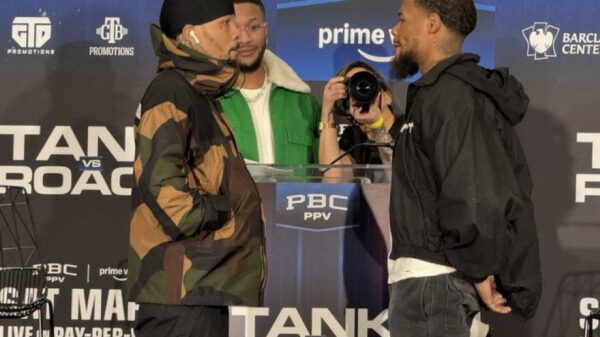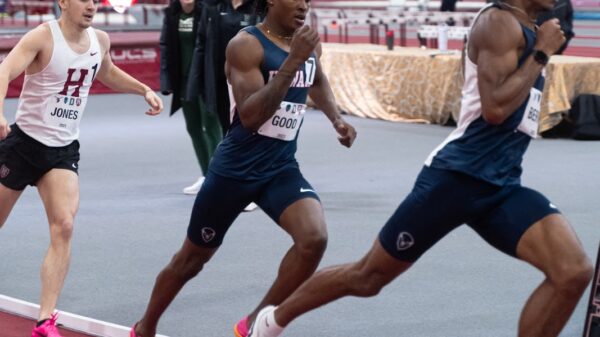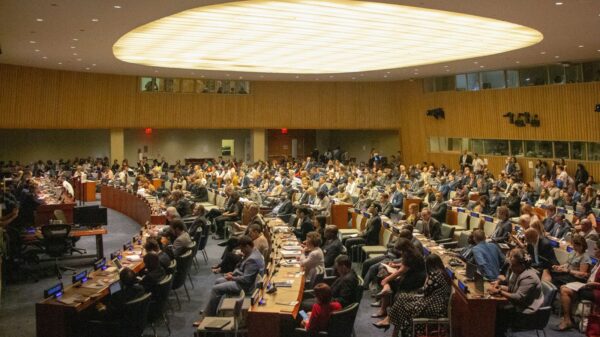In a 6-3 landmark decision, the Supreme Court reversed lower court decisions effectively ending nearly six decades of affirmative action policies and consideration of race as a factor in admission decisions for institutions of higher education.
The New York Times recently reported that the Supreme Court’s decision may lead to a decline in marginalized groups’ representation in many public and private postsecondary institutions. While affirmative action predominantly focuses on integrating predominantly white institutions, the direct implications of the decision will drastically shape the future of historically Black colleges and universities (HBCUs), according to higher education experts.
“By not allowing race to be considered in admissions elsewhere, you can put an even more outsized burden on historically Black colleges and universities who don’t have the capacity to carry that type of a burden,” said Howard University president Wayne A.I. Frederick in an interview with CNN in late June, calling the decision an “unfortunate” one.
HBCUs are critical to recruiting and developing underrepresented students in different professional fields. According to a 2019 report by the United Negro College Fund (UNCF), 17% of all bachelor’s degrees and 24% of all STEM-related bachelor’s degrees earned by Black students in the U.S. were awarded by HBCUs.
A McKinsey Institute for Black Economic Mobility’s report also highlights that HBCUs supply more Black applicants to medical schools than non-majority Black institutions and that HBCUs have graduated 80% of all Black judges; 50% of all Black lawyers; 40% of all Black U.S. Congress members; and 40% of all Black engineers.
With the recent Supreme Court decision, HBCUs – which have been historically under-resourced compared to predominantly white institutions (PWIs) as recently reported by education advocates – may see an increase in applicants becoming more selective.
Professor Joshua Myers of Howard University expressed how this decision may pique some curiosity and likeness among a certain demographic of students regarding HBCUs. Specifically, Black high school graduates who feel underrepresented at PWIs or excluded from HBCUs.
“It may cause some interest among people who might feel excluded from those spaces now,” he said. “I think admin would be attracted to those types of students as well. I’m not sure how this might impact student culture, but demographically it will have the impact of making Howard more exclusive. Hopefully, that doesn’t happen.”
To Myers, the fate of such students now rests with HBCUs, which could significantly shape America’s future.
According to Higher Ed Dive, the most well-funded HBCUs need more resources to deal with the issues plaguing colleges nationwide, from financial aid to housing shortages and a staffing crisis. Education researchers note that other HBCUs may also experience pressure to address these needs without having resources that enable them to do so.
In recent years, Howard University has experienced an increase in admissions, enrollment and its endowment. According to the university’s admissions page, Howard received 29,391 applications and admitted 35 percent of the candidates last year.
The decision in favor of race-neutral policies forces universities to find new means to achieve a diverse student population and denies the gaps and barriers produced by existing structural racism and a long history of racial injustice in the United States.
“They have wrongly concluded that the touchstone of an individual’s identity is not challenges bested, skills built or lessons learned, but the color of their skin. Our constitutional history does not tolerate that choice,” Chief Justice, John G. Roberts Jr., said, referencing the admissions policies at Harvard University and the University of North Carolina.
The Supreme Court utilized the Equal Protection Clause of the 14th Amendment – which was created to preserve the civil rights and liberties African Americans were denied – as justification for overturning affirmative action.
The ruling states that among the many factors that go into admissions decisions, the use of race “must comply with strict scrutiny, may never use race as a stereotype or negative, and must—at some point—end.”
Supreme Court Justice Ketanji Brown Jackson refuted Roberts’ opinion in her dissenting statement. “Our country has never been colorblind,” Jackson said.
“Given the lengthy history of state-sponsored race-based preferences in America, to say that anyone is now victimized if a college considers whether that legacy of discrimination has unequally advantaged its applicants fails to acknowledge the well-documented ‘intergenerational transmission of inequality’ that still plagues our citizenry,” she continued.
Affirmative action policies were implemented in the United States during the 1960s as a response to the Civil Rights Movement. The policies began in 1961, with President John F. Kennedy’s executive order commanding government contractors to take affirmative action to ensure that applicants are employed and that employees are treated during employment, without regard to their race, creed, color, or national origin.”
Affirmative action policies were later strengthened by President Lyndon B. Johnson’s Civil Rights Act of 1964, and executive order 11246 in 1965, initially intending to temporarily address inequality faced by African Americans. Since then, affirmative action programs and policies were expanded to include and protect other historically marginalized groups, such as people who identify as LGBTQIA+, low-income individuals, senior citizens, women of color and others.
As high school seniors eagerly apply to colleges and universities, pursuing higher education opportunities, some students believe the recent overturning of affirmative action has significantly impacted their college choices.
“I was shocked about the overturning of affirmative action because it can have significant consequences for students and the paths they take regarding educational opportunities,” Cherissa Shephard, a senior at Heritage High School in Brentwood, California, said, expressing her surprise about the decision.
“I think it will affect the underprivileged students more than anyone else,” Shephard concluded, recognizing its potential consequences on students’ educational paths.
According to the New York Times, a 2017 study found that 38 U.S. universities – including five Ivy League schools – have enrolled more students from the top 1% of earners than from the bottom 60%.
In 2018, the Boston Globe reported that Harvard had a ratio of 23:1 between wealthy students and low-income students. With the overturning of affirmative action, these numbers may increase.
Regardless of changes to affirmative action policies, Shephard plans on attending an HBCU after graduation because she believes that all students should aim high and go where their heart is set. “I want to see HBCUs succeed and continue growing and teaching Black people how to thrive as minorities,” Shephard said.
Many students have expressed their need for more support from the HBCUs they attend, and with the overturning of affirmative action, their concerns could either be resolved or worsened. With the Supreme Court’s reversal decision, Black high school graduates might be inclined to consider attending an HBCU.
Copy edited by Whitney Meritus













